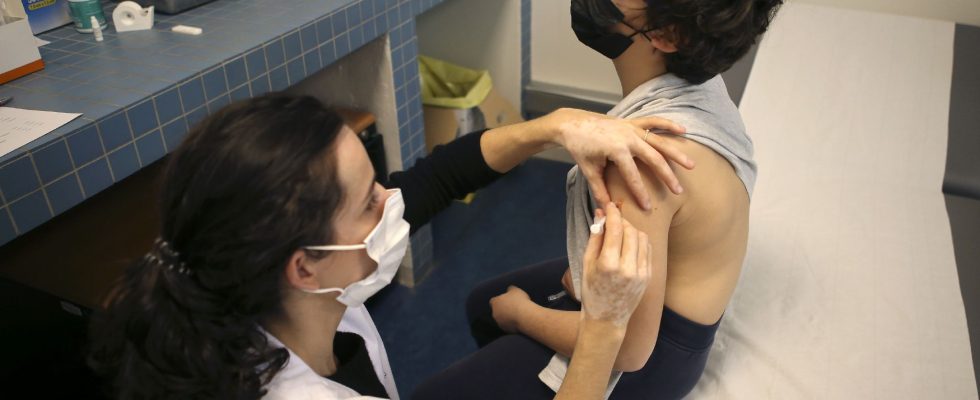While vaccination against the Covid-19 virus has started timidly, that of the flu opens this Tuesday, October 17. With one specificity compared to previous years: children will have access to it from the age of two, without the need to present a comorbidity.
Since 2020, it is also possible to combine the injection with that of the Covid-19 vaccine during the same visit.
Last year, the flu epidemic was “early and exceptionally long”, “of very high intensity” and was marked by “a significant impact on those under 65 in hospital”, recalls Public Health France . If those over 65 were the most affected and accounted for almost 90% of deaths, younger age groups were hit to an unusual degree.
2.5 million each year between October and March
This year, health authorities are therefore focusing more than ever on prevention. “Vaccination is recommended to protect people at risk of developing a serious form of influenza, who are also those at risk of serious Covid-19 infection,” indicates Health Insurance. And to ensure that if vaccination does not always prevent the disease, it “reduces the risk of serious complications or death”.
It must be said that with more than 2.5 million cases on average each year in France, the flu is a “contagious” infection, which generally occurs from October to March, and in certain cases can be “very serious”. “. Complications such as pneumonia or decompensation of asthma can occur. Every year, an average of 9,000 people die after contracting a severe form of the virus. This is why vaccination of vulnerable people is strongly recommended by health authorities.
Elderly people, immunocompromised people, medical personnel…
Thus, all people aged 65 and over, “people under 65, including children from the age of 6 months, suffering from certain chronic illnesses”, pregnant women, people suffering from obesity are invited to receive an injection. “For these fragile people, vaccination is essential. It is the most effective way to protect yourself from the flu,” insists Health Insurance once again.
Like the Covid-19 vaccine, the flu vaccine is also recommended for all health personnel, and particularly for “any professional in regular and prolonged contact with people at risk of severe flu”. Parents and, more broadly, those close to infants under six months at risk of serious complications and immunocompromised people are also encouraged to be vaccinated. Note that if the duration of protection of the vaccine is of the order of six months, it is necessary to allow around fifteen days after the injection to consider being immunized.
Four vaccines available, very few contraindications
This year, four influenza vaccines are available in pharmacies: Fluarix Tetra, InfluvacTetra, VaxigripTetra and Efluelda. The first three can be administered to anyone, “including children aged 2 to 17”. Efluelda is intended “for people aged 65 and over”.
Although the flu vaccine has few contraindications, it is however not recommended for people with proven hypersensitivity to one of the substances included in the composition of the vaccine, or “to the residues present […] in trace amounts, such as eggs or chicken proteins.
While last year the vaccination coverage rate was 51.5% for the entire population at risk targeted by the recommendations of the High Authority of Health, the health authorities hope to reach this year the threshold of 75% set by the World Health Organization (WHO).
